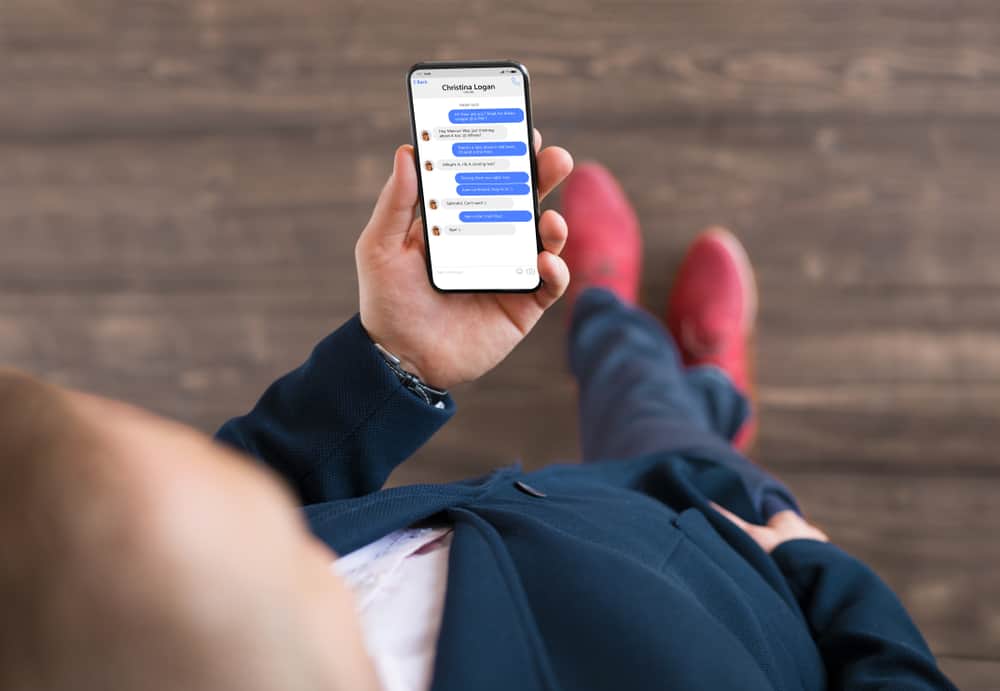
When you open your Messenger application, you will notice in the main chats window there is an order that Messenger uses to create this arrangement.
You may get curious about how Messenger comes up with this order to determine who appears first. Still, if you open the “People” tab, you will also notice Messenger uses an order to decide who appears first.
Messenger mainly relies on the frequency of interaction to determine how it decides who will appear first. The people you frequently chat with will appear first in the main chat window. The order in the “People” tab mainly consists of online people who mostly interact with your Facebook profile. Ideally, how much Messenger determines you interact with a given person will affect the priority the given person will have.
This guide will discuss how Messenger works and focus on understanding how Messenger decides who should appear first on the chats tab and other tabs.
How Does Messenger Work?
When you have a Facebook account, you can download the Messenger application or access it via the website by logging in using your Facebook credentials. Messenger links with Facebook, and you can connect with your Facebook friends on Messenger to communicate with them conveniently.
Still, you can sync your contacts to chat with them on Messenger. Unlike Facebook, even people outside your friend list can contact you on Messenger. Messenger allows you to create group chats and communicate via texts or calls.
Many Messenger users rely on it for video calls. You can also view the Facebook stories your friends post. Messenger uses different status icons to show when someone is currently active on Messenger. That way, you can keep a tab on who is online.
How Does Messenger Decide Who Appears First?
Messenger uses a criterion to determine how it orders people you communicate with on the platform. You can access people on Messenger in two primary tabs: “Chats” and “People.” Let’s discuss the ordering for each tab.
The “Chats“ Tab
The “Chats” tab is the default window when you open your Messenger application. You will find all your new messages and conversations with Messenger friends here. Also, you will note that Messenger has a way it decides who appears first in this tab.
Here, the order is based on the frequency of communication. At the top, you will find the person you mostly communicate with. Still, the sender will appear first on the list if you recently received a new message.
The arrangement keeps changing with the increasing frequency of communication. A person must be actively chatting with you to remain at the top. When you have multiple chats, someone can easily get pushed down the list if they are inactive in communicating with you.
The “People“ Tab
You can open the “People” tab on the Messenger application to see your active friends. Anyone who is currently online on Messenger will appear on this tab.
Here, the first criteria to determine who appears first depends on how active they are. Someone who frequently communicates with you and interacts with your profile will take the top position. Besides, the arrangement relies on the people that are currently active. Moreover, how people interact with your Facebook profile also matters.
Someone who keeps viewing your posts, stories, commenting, etc., will take priority as their interaction is higher than others. If all the online people are not people you frequently chat with, Messenger will order them based on their online presence.
While on the “People” tab, you can click the contact book at the top, which will also bring up a list of your Messenger friends. In this case, the arrangement is based on the alphabetical arrangement of the names of your Messenger friends.
Conclusion
Messenger mainly relies on the frequency of communication and the profile interaction to determine who appears first in your chats tab and the People tab. This post has explained the two tabs and how Messenger decides who should appear first in each case.











